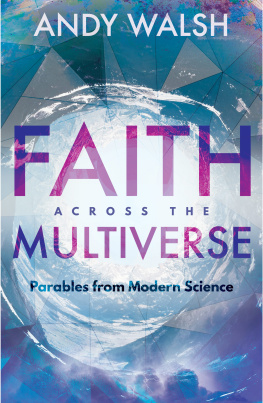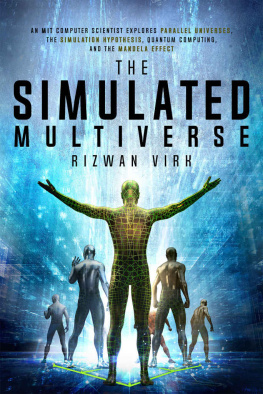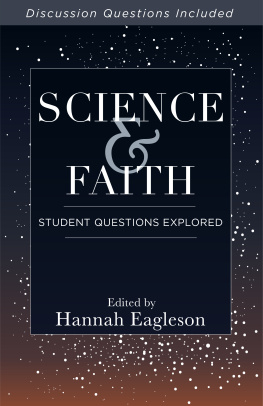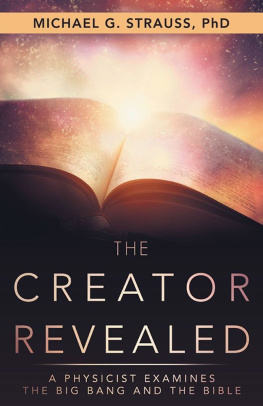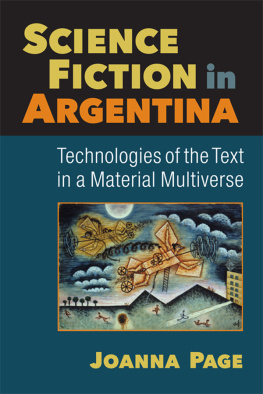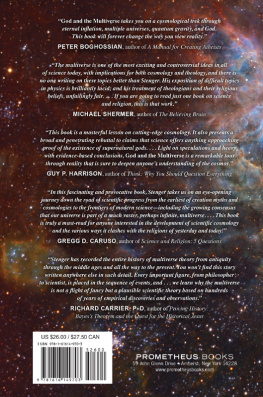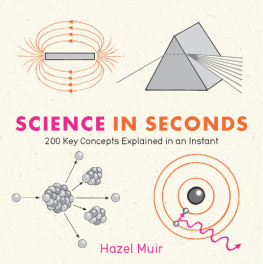CHAPTER 0
The Power of Babel Fish
I dont know if youve heard, but its going to be the future soon. Who wants to wait that long to see how it turns out, though? We can find spoilers for our favorite movies, TV shows and books; we should be able to do the same for reality. If we want to peek ahead, may I propose examining the Bible.
How did the Bible get into it? I hear you cry. What could it possibly have to do with the future, a land flowing with math and science? True, the Bible was written in an ancient context and contains ancient history, yet its teachings can supposedly be implemented in a variety of contexts. So lets run the experiment.
Can we define abstract ideas like faith and sin and grace in terms that make sense to nerdy, funny scientists? Can a life lived two thousand years ago shed light on our modern situation? Can we develop a community that incorporates a diverse assemblage of people? Can simple principles from the past encompass the complexity of the present? Our task here is to find out.
Lets begin at the end, as in the end of the world. As it happens, theres this great place to eat. Everyone wants to get in, only its prohibitively expensive. Thats the bad news. The good news is that if you make an investment now, you can afford the price when you get there.
If you have studied your Douglas Adams (which I have), you may recognize the Restaurant at the End of the Universe from his sci-fi comedy novel of the same name. In his cosmology, the universe collapses back in on itself at the end of time. A space restaurant opens up shortly beforehand, so the primarily time-traveling patrons can have a meal while they enjoy the view. The only way to afford the prices is to invest in the presenteven a penny will doand let the power of compound interest do the rest.
Yet I was thinking of the Bible, which has a similar story arc. The very last chapters of the Bible describe a great wedding feast at the end of the world. People from all over the world and all throughout time celebrate together; it is the place to be. Money isnt an issue; no one could afford the price if it were. A strict dress code is enforced, however. The good news is that if you choose to attend, arrangements have been graciously made to provide the necessary clothes for you.
That wedding gives the Bible the structure of a comedy, not in the humorous sense of Adams books but the classical sense of resolving with a community reconciled to itself via symbolic or literal marriage. The people who appear in the Bible grapple with questions about purpose and seek to understand where they came from and where they are going as they confront the possibility that the world within their immediate experience may not be all there is. Adams protagonist Arthur Dent shares those concerns as he discovers humans are not alone in the universe and that the Earth may factor into a plan on a scale he cannot imagine when the story begins. Of course, there are plenty of points of departure between the two texts, and Im not remotely suggesting that Adams was just cribbing the Bible. Yet the thematic overlap suggests the possibility that the Bible may not be as irrelevant to today as its age might imply.
Imagine chatting with someone from the Bible. For allegedly primitive texts, the Bible contains some remarkably modern individuals with whom we might find common ground. Consider Gideon, whom we meet in the book of Judges chapter 6. He believes he heard a message from God, but he has doubts, so he devises a remarkably rigorous confirmation process. He asks God to make a fleece wet with dew overnight. He further asks for God to leave the ground dry, which we would call a negative control in modern scientific research. The next day, just to make sure it wasnt a fluke or some unappreciated property of fleece, he repeats the experiment in reverse. Even if you dont believe the account is historical or you can think of an alternate explanation for the data, you can still appreciate the sophistication of Gideons methodology.
Then theres Elijah. In 1 Kings 18, Elijah confronts prophets of the deity Baal. Elijah suggests an empirical test: both parties will prepare a burnt offering but let the deities provide the flame in order to make their existence known. Elijah even douses his meat and altar with water, just to rule out the possibility of an errant spark lighting it. Then, while the prophets of Baal make their entreaties, Elijah heckles them sarcastically. His biting and even at times scatological material would play at a roast. (Actually, I suppose it did.)
One last examplethe writer of Ecclesiastes. Identified only as a teacher in the text, he is traditionally thought to be the famously wise Israelite king Solomon. This teacher has a crisis of faith; he looks at the world around him and thinks it is all pointless, meaningless, futile. He seeks purpose in education, in material pleasures, in prestige and accomplishment, and he finds them all wanting. He wonders why there is so much evil in the world and questions the value of working when everything one does can be undone. In the end, he concludes it is still better to be alive than dead, to do something rather than nothing, to build rather than tear down. He affirms the value of creating meaning collectively.
Those questions sound awfully relevant to the present. And the conclusions seem pretty modern as well. Is it so unreasonable to think someone like this teacher might have something to say to us today?
Of course, the language barrier would still be a concern for these cross-time conversations. Whatever common human nature we might share with Elijah or Gideon would be challenging to discover conversationally. In Douglas Adams fictional world, we could solve this problem with the Babel fish. Babel fish are alien organisms that have developed the ability to translate language. Just stick one in your ear (yep) and you will instantly be able to understand everything anyone says, no matter what language they speak.
I have a particular affinity for Babel fish because Ive spent much of my career filling a similar role within the sciences. I wound up learning a lot of math for a graduate student in microbiology, so I spent a lot of time teaching statistics to my fellow biologists. That helped me get a postdoctoral fellowship facilitating collaboration between computer scientists and biologists by pointing out where their ideas overlapped and, just as importantly, where they thought they were talking about the same thing because they were using the same word, but they actually had very different concepts in mind. And now I work for a public health software company, translating between public health users and software engineers and teaching everyone a little math and basic biology along the way.

